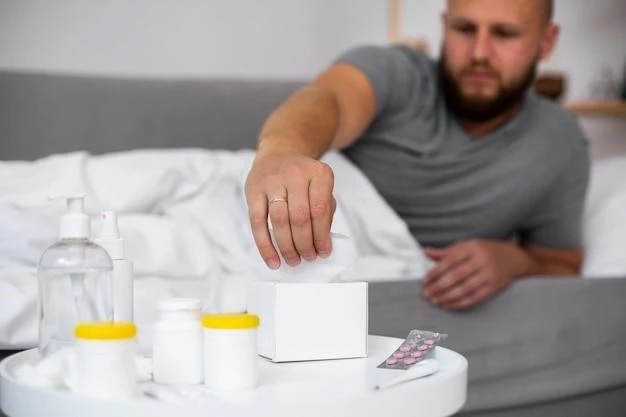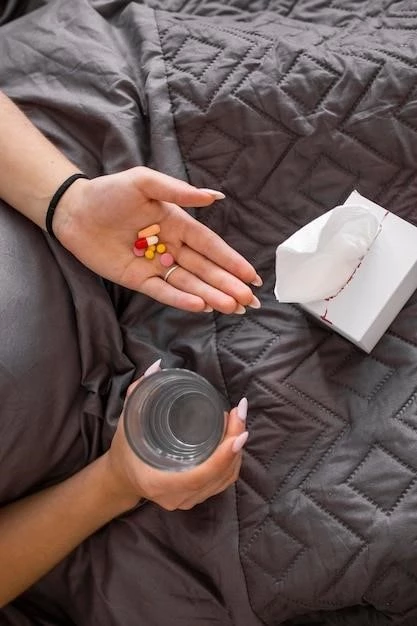Understanding Boils
Causes of Boils⁚ Boils are mainly caused by staphylococcus bacteria entering the body through cuts or hair follicles.
Causes of Boils
Boils are often caused by Staphylococcus aureus bacteria, commonly found on the skin. Factors like poor hygiene, compromised immune system, close contact with someone having boils, and friction from tight clothing contribute to the formation of boils. The bacteria enter the body through a cut or hair follicle, infecting the skin and leading to the development of a painful, swollen pus-filled lump. Understanding these causes can help in preventing the occurrence of boils and maintaining good skin health.
Treatment for Boils
For uncomplicated boils, applying warm compresses can help the boil to drain naturally. Avoid squeezing or puncturing it. In more severe cases or if the boil doesn’t drain on its own, seek medical attention. A healthcare provider may lance and drain the boil, prescribe antibiotics if needed, or recommend other treatments based on the size and severity of the boil. It’s essential not to self-treat large, painful, or recurring boils at home and consult a healthcare professional for proper evaluation and treatment.
Managing Boils at Home
Effective home remedies and preventive measures can be key in managing and avoiding the discomfort of boils.
Home Remedies for Boils
Home remedies like warm compresses, tea tree oil, turmeric paste, and proper hygiene can help promote healing and relieve discomfort. Applying warm compresses several times a day can help the boil to come to a head and drain naturally. Tea tree oil possesses antibacterial properties that may aid in the treatment of boils. Turmeric paste, a natural anti-inflammatory agent, can be applied topically to reduce inflammation. Maintaining clean skin and avoiding squeezing or picking at the boil are essential in home care for boils.
Prevention of Boils
To prevent boils, practice good personal hygiene, especially in areas prone to sweating. Regularly wash your hands and keep any cuts or wounds clean and covered. Avoid sharing personal items like towels and razors that may harbor bacteria. Maintain a healthy diet and avoid tight clothing that may cause friction. Strengthening the immune system through a balanced lifestyle, including regular exercise and adequate rest, can also help in preventing the occurrence of boils.

Dealing with Specific Scenarios
Understanding how to manage boils in different situations like on the face, recurring cases, or in children is crucial for effective treatment.
Boils on Face
Boils on the face can be particularly uncomfortable and noticeable. Applying warm compresses and refraining from squeezing can aid in their treatment; Avoid makeup on or around the boil. If the boil persists, becomes larger, or is accompanied by a fever, consult a healthcare provider for appropriate management. Ensure gentle care and cleanliness to prevent spreading or further complications when dealing with boils on the face.
Recurring Boils
Recurring boils can be indicative of underlying issues like a weak immune system or conditions like diabetes. Consulting a healthcare provider is essential for proper diagnosis and treatment. Identifying and addressing the root cause, following a healthy lifestyle, maintaining good hygiene, and considering medical advice can help in managing and preventing the recurrence of boils.
Boils vs. Pimples
Boils and pimples differ in their appearance and causes. Boils are larger, tender lumps filled with pus, often caused by bacterial infection, while pimples are smaller, inflamed skin lesions typically from clogged pores. Boils are more painful and may require medical attention, whereas pimples can usually be treated with over-the-counter products. Understanding these distinctions can aid in appropriate treatment and management based on the specific skin condition.
Boils in Children
Boils in children are common and can be caused by factors like poor hygiene or minor skin injuries. Teaching kids proper handwashing and skin care can help prevent boils. It’s crucial to avoid squeezing or attempting to treat boils at home and instead seek guidance from a pediatrician for appropriate care. Keeping the affected area clean and applying warm compresses can aid in the natural healing process. Monitoring the boil’s progress and consulting a healthcare provider if needed are important steps in managing boils in children.
